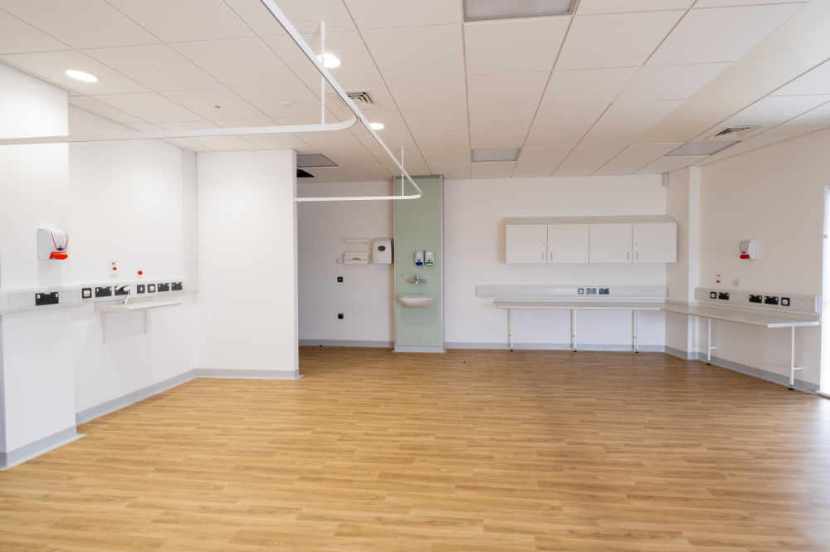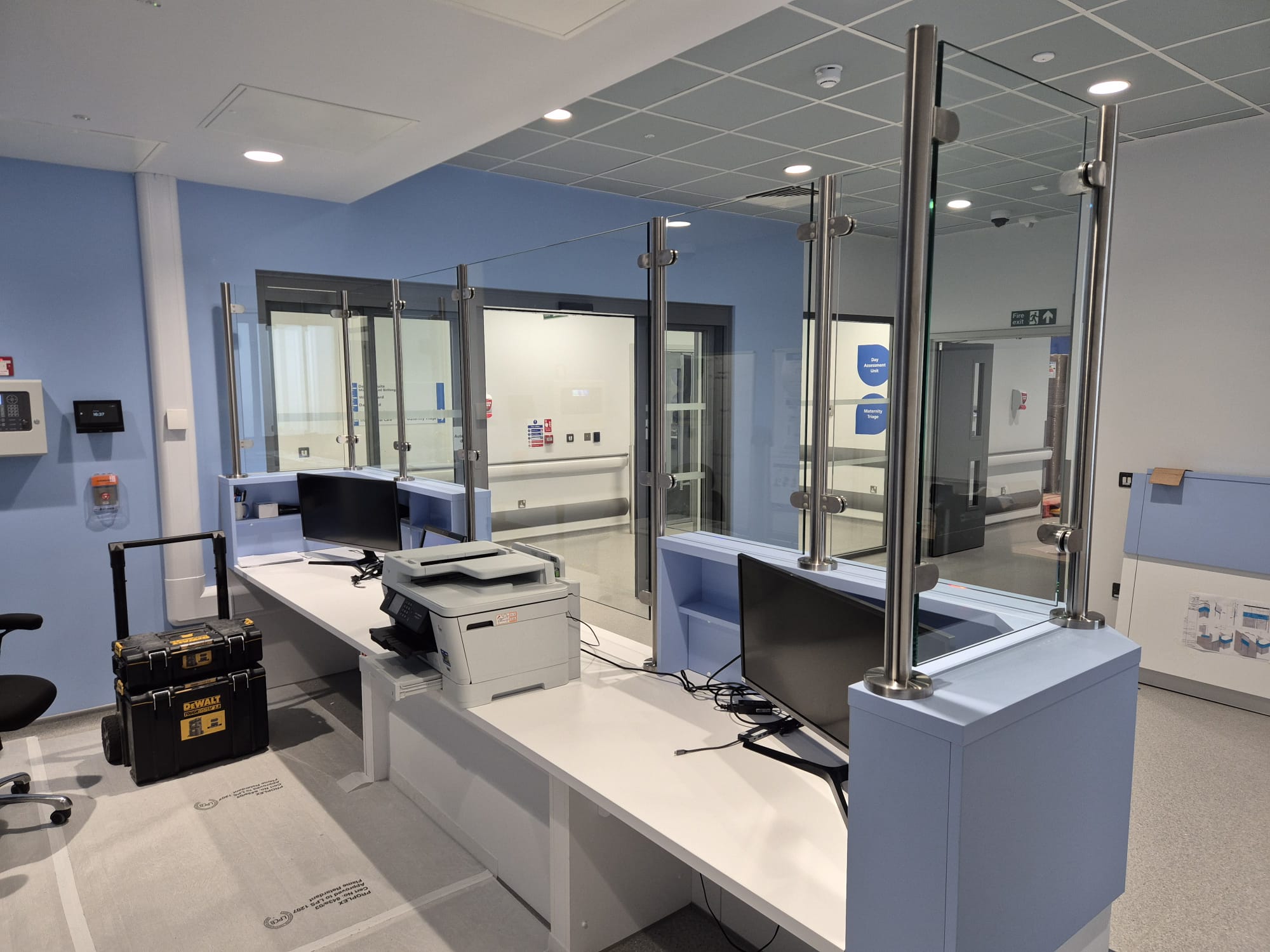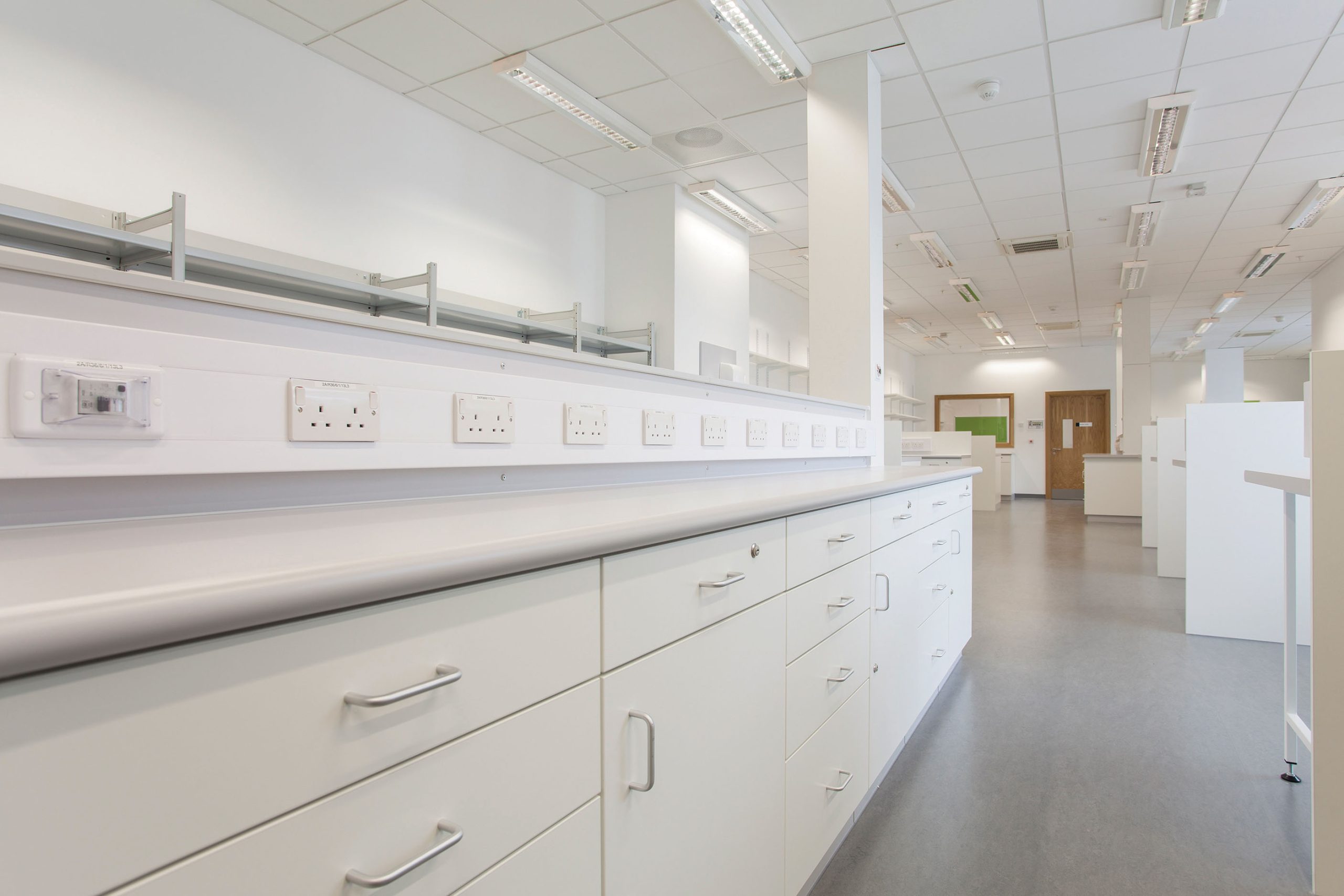The safety of NHS staff has become one of the most pressing challenges facing healthcare…

Meeting the space needs of GP surgeries and community diagnostic centres
The NHS continues to undergo a significant transformation, with the primary focus on reducing patient waiting times and to achieve this, the government is actively encouraging GP surgeries and community diagnostic centres (CDCs) to expand their services. It is a positive move which promises to bring healthcare closer to patients, improving accessibility and efficiency, but as these healthcare facilities adapt to accommodate these new services, there will also be a need for more flexible and functional furniture solutions, writes Tony Huggins, managing director of David Bailey Furniture.
Increasing patient numbers and a growing backlog of procedures over several years, has been an ongoing challenge for the NHS. The COVID-19 pandemic exacerbated this, leading to unprecedented waiting times for routine surgeries, diagnostic tests and specialist consultations. To address this crisis, the previous government identified GP surgeries and CDCs as key players in expanding capacity and improving patient care – and this seems to have been supported by the new administration.
GP surgeries, which have traditionally focused on primary care, are being tasked with taking on additional responsibilities. This includes performing minor surgical procedures such as the removal of moles, cysts and varicose veins. CDCs, on the other hand, are purpose-built facilities dedicated to providing diagnostic services like MRI scans, X-rays and ultrasound examinations. Both types of facilities are essential to the government’s plan to improve access to care and reduce waiting times.
To effectively deliver these expanded services, GP surgeries and CDCs must adapt their physical environments to accommodate new clinical workflows and equipment. This involves creating flexible spaces that can be easily reconfigured to meet changing needs.
The importance of flexible furniture solutions
As GP surgeries and CDCs evolve, the furniture within these facilities must be equally adaptable, while meeting all the requirements of strict bacteria control, durability, easy clean surfaces and features such as no sharp corners. Traditional fixed furniture arrangements in areas where there is unlikely to be change in the future, deliver the perfect solution, but this is not necessarily the case for every room.
This is when you would need more flexible furniture systems like Toprail, a division of David Bailey Furniture, which offers unparalleled versatility and functionality. Toprail is a modular system that allows for endless configurations. Walls, partitions and storage units can be easily assembled, rearranged, or removed to create different layouts. This flexibility is invaluable in healthcare settings, where space utilisation and adaptability are paramount.
We know that the best use of space is particularly important in any healthcare environment. According to a recent report by NHS Providers, the UK’s healthcare system is struggling with outdated infrastructure, insufficient space and – as we already know – increasing patient demands. Efficient space utilisation is therefore central to overcoming these challenges, and this is where fitted furniture can have a remarkable impact.
In expanding healthcare environments such as surgeries and CDCs, the significance of well-organised storage cannot be overstated. Efficient storage systems not only ensure that essential medical supplies and equipment are readily accessible, but they also contribute to reducing clutter, enhancing cleanliness and ultimately promoting patient safety.
Research published in the “Journal of Medical Systems” highlights the positive correlation between organised storage and improved patient care. Fitted furniture systems, with their ability to be customised to specific needs, offers bespoke storage solutions that align with the demands of different departments. From pharmacy storage to medical equipment compartments, fitted furniture optimises storage potential while maintaining an organised and easily navigable environment.
Fitted furniture is not only about storage – it’s about transforming workflows and enhancing overall operational efficiency. In the context of healthcare, streamlined workflows translate to quicker response times, reduced errors and enhanced staff productivity.
David Bailey Furniture Systems is at the forefront of transforming healthcare spaces with efficient fitted furniture solutions. Our expertise lies in crafting designs that seamlessly merge functionality and aesthetics while optimising the use of available space.
Fitted furniture does not just address the operational aspects of healthcare spaces – it also contributes to creating patient-centric environments. Research published in the “Health Environments Research & Design Journal” highlights the importance of patient-centred design in improving overall patient experiences and outcomes. David Bailey Furniture Systems recognises this significance and integrates patient-centric elements into their designs.
So, we can demonstrate that efficient space utilisation is not a luxury but a necessity in UK surgeries and CDCs, grappling with spatial constraints and increasing healthcare demands.
Creating Optimized Healthcare Environments
To fully realise the potential of GP surgeries and CDCs as centres of care, it is essential to create environments that support both staff and patients. This involves careful consideration of factors such as space planning, equipment placement and furniture selection.
By incorporating flexible furniture systems into the design process, healthcare facilities can create spaces that are not only functional but also inspiring. A well-designed environment can contribute to improved patient outcomes, staff satisfaction and overall operational efficiency.
Investing in furniture that can evolve with their needs, GP surgeries and CDCs can also ensure they are well-prepared to meet the challenges and opportunities of the future – and as the NHS continues to transform, adaptable furniture systems will be essential in supporting the delivery of high-quality care.








